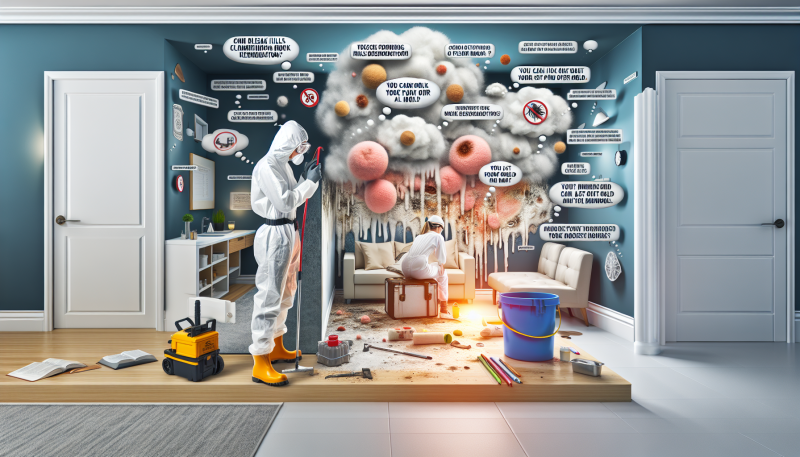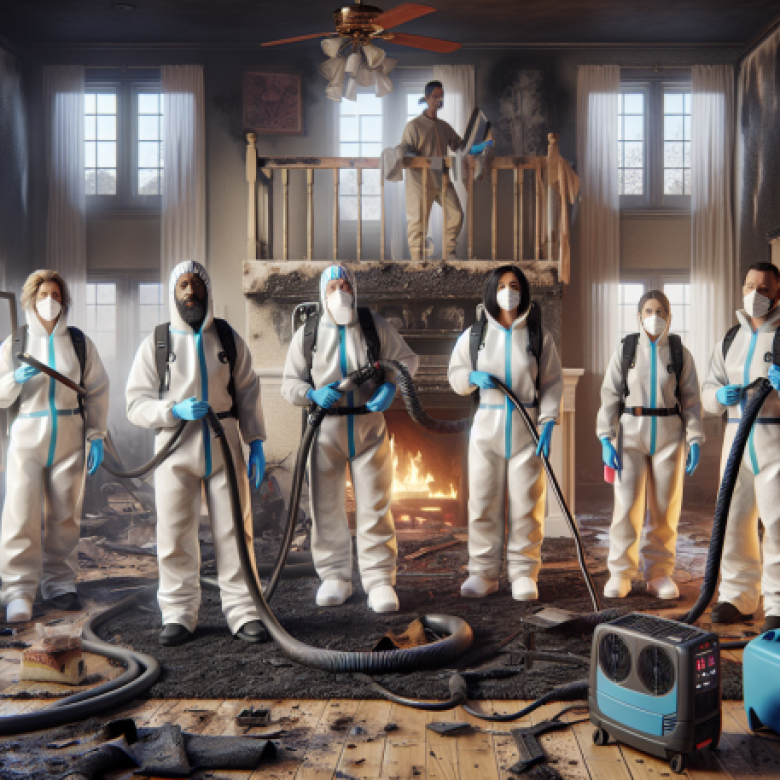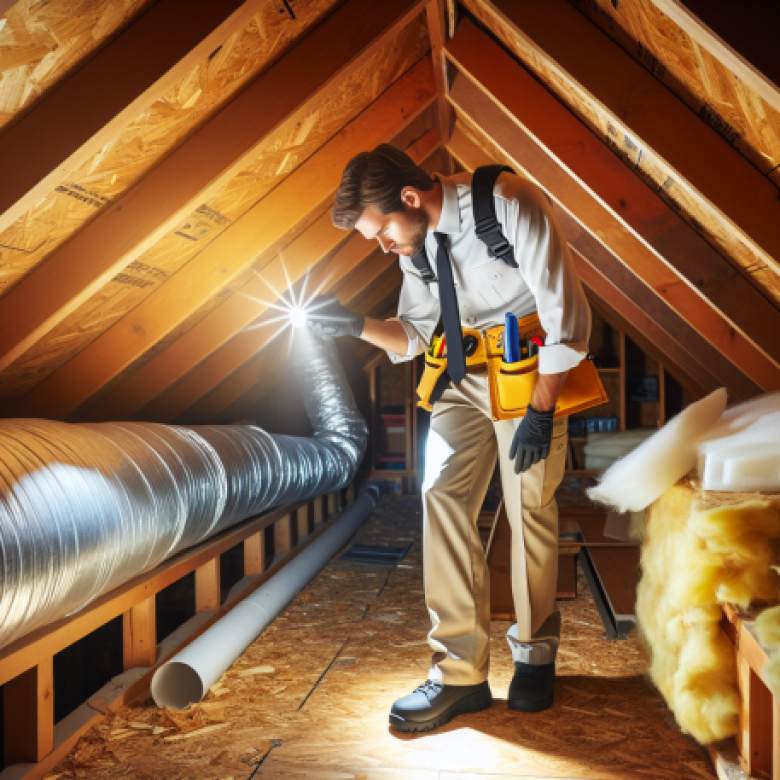Mold remediation is a critical process for maintaining a safe and healthy environment in both residential and commercial properties. However, there are many misconceptions surrounding mold and its removal that can lead to confusion and ineffective solutions. At Projekt Property Restoration, we specialize in mold assessment and remediation, drawing on over 16 years of experience in property restoration. Our fully licensed and insured team is dedicated to debunking these common myths to help you understand the importance of proper mold remediation. From the belief that all mold is toxic to the idea that DIY methods are sufficient, we aim to clarify the facts and provide you with the knowledge needed to protect your property. Located in Aventura, FL, we offer 24/7 emergency services and a commitment to quality and affordability. Whether you’re dealing with water damage, fire damage, or mold issues, our expert team is here to restore your property to its pre-loss condition. Contact us today at 1-855-933-7935 or email Claims@ProjektFL.com for a free quote and let us help you navigate the complexities of mold remediation.
Understanding the Truth: Mold Removal vs. Mold Remediation
Mold is a common issue that many homeowners face, and understanding the difference between mold removal and mold remediation is crucial for effective management and prevention. While the terms are often used interchangeably, they represent distinct processes that address mold problems in different ways.
Mold removal refers to the physical act of eliminating mold from a specific area. This process typically involves cleaning surfaces, removing contaminated materials, and ensuring that the visible mold is eradicated. However, mold removal alone does not address the underlying causes of mold growth, such as moisture issues or poor ventilation. As a result, mold can easily return if these factors are not resolved.
On the other hand, mold remediation is a comprehensive approach that not only involves the removal of mold but also the identification and correction of the conditions that led to its growth. This process includes assessing the extent of the mold infestation, containing the affected area to prevent spores from spreading, and implementing strategies to eliminate moisture sources. Remediation may also involve repairing water damage, improving ventilation, and using specialized equipment to ensure that the air quality is safe.
According to the Environmental Protection Agency (EPA), mold can cause a variety of health issues, including respiratory problems, allergic reactions, and other serious health concerns. Therefore, understanding the difference between removal and remediation is vital for protecting both your home and your health.
A common misconception is that mold can be completely removed from a home. In reality, mold spores are present in almost every environment, both indoors and outdoors. The goal of remediation is to reduce mold levels to a safe and acceptable level, rather than attempting to eliminate all mold entirely.
When considering mold issues, it is essential to consult professionals who specialize in mold assessment and remediation. They can provide a thorough evaluation of the situation and recommend the best course of action. For instance, if you suspect mold in your home, you might want to look into a mold assessment to determine the extent of the problem and the necessary steps for remediation.
In summary, while mold removal focuses on eliminating visible mold, mold remediation encompasses a broader strategy that addresses the root causes of mold growth. By understanding these differences, homeowners can make informed decisions about how to tackle mold issues effectively.
For further information on mold-related services, you can explore options such as mold removal in Cooper City or mold removal in Davie. Taking proactive steps to manage mold can lead to a healthier living environment and prevent future infestations.
In conclusion, understanding the truth about mold removal versus mold remediation is essential for effective mold management. By recognizing the differences and seeking professional help, homeowners can protect their properties and ensure a safe living space.
The Cost of Mold Remediation: What You Really Need to Know
When it comes to mold remediation, understanding the costs involved is crucial for homeowners and property managers alike. Mold can pose serious health risks and structural issues, making timely remediation essential. However, the financial implications of mold removal can vary widely based on several factors.
First, the extent of the mold infestation plays a significant role in determining the overall cost. Minor mold issues, such as small patches in a bathroom, may only require a few hundred dollars for remediation. In contrast, extensive infestations that have spread throughout a home can lead to costs in the thousands. The size of the affected area, the type of mold present, and the materials involved all contribute to the final bill.
Another important factor is the location of the mold. Mold that has penetrated walls, ceilings, or flooring may require more invasive procedures, including demolition and reconstruction. This not only increases labor costs but also necessitates the replacement of materials, which can add to the expense. For instance, if mold is found in drywall or insulation, these materials may need to be removed and replaced entirely, further driving up costs.
The method of remediation also impacts the price. Different techniques, such as chemical treatments, HEPA vacuuming, or encapsulation, come with varying costs. Professionals may also use specialized equipment like dehumidifiers or air scrubbers to ensure that the air quality is safe after remediation. These additional tools and methods can increase the overall cost but are often necessary for effective mold removal.
Labor costs can vary significantly based on geographic location. In urban areas or regions with a high cost of living, you may find that mold remediation services are more expensive than in rural areas. It is essential to obtain multiple quotes from certified professionals to ensure you are getting a fair price for the services rendered.
Homeowners should also consider the potential for hidden costs. For example, if a mold assessment reveals underlying water damage or structural issues, additional repairs may be necessary. This can lead to unexpected expenses that can add up quickly. Therefore, it is wise to budget for potential contingencies when planning for mold remediation.
Insurance coverage is another critical aspect to consider. Some homeowners insurance policies may cover mold remediation, but this can vary widely. It is essential to review your policy and consult with your insurance provider to understand what is covered and what is not. In some cases, you may need to provide documentation of the mold issue and the steps taken to remediate it to receive coverage.
To help manage costs, homeowners can take proactive measures to prevent mold growth in the first place. Regular maintenance, such as fixing leaks, ensuring proper ventilation, and using dehumidifiers in humid areas, can significantly reduce the likelihood of mold infestations. By investing in preventive measures, you can save money in the long run by avoiding costly remediation services.
In conclusion, the cost of mold remediation can vary widely based on several factors, including the extent of the infestation, the location of the mold, the methods used for removal, and labor costs. Homeowners should be prepared for potential hidden costs and consider their insurance coverage when budgeting for remediation. By taking preventive measures, you can minimize the risk of mold growth and the associated costs. For more information on mold assessment and remediation, or to get a quote, visit our contact page or use our cost calculator to estimate your needs.
In conclusion, understanding the common myths about mold remediation is essential for homeowners and property managers alike. By debunking these misconceptions, we can make informed decisions about mold management and ensure a healthier living environment. It’s crucial to recognize that not all mold is harmful, that DIY methods may not always be effective, and that professional remediation is often necessary for comprehensive removal. Additionally, prevention through proper ventilation and moisture control is key to avoiding mold issues in the first place. By arming ourselves with accurate information, we can tackle mold challenges more effectively and protect our homes and loved ones from potential health risks. Remember, when it comes to mold, knowledge is power—so stay informed and proactive!





